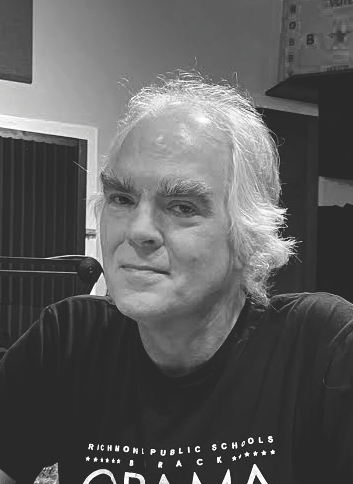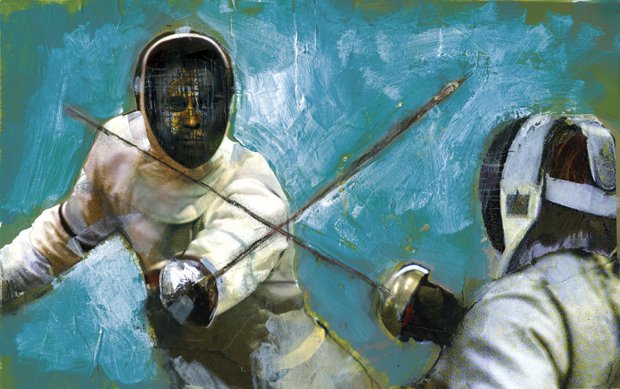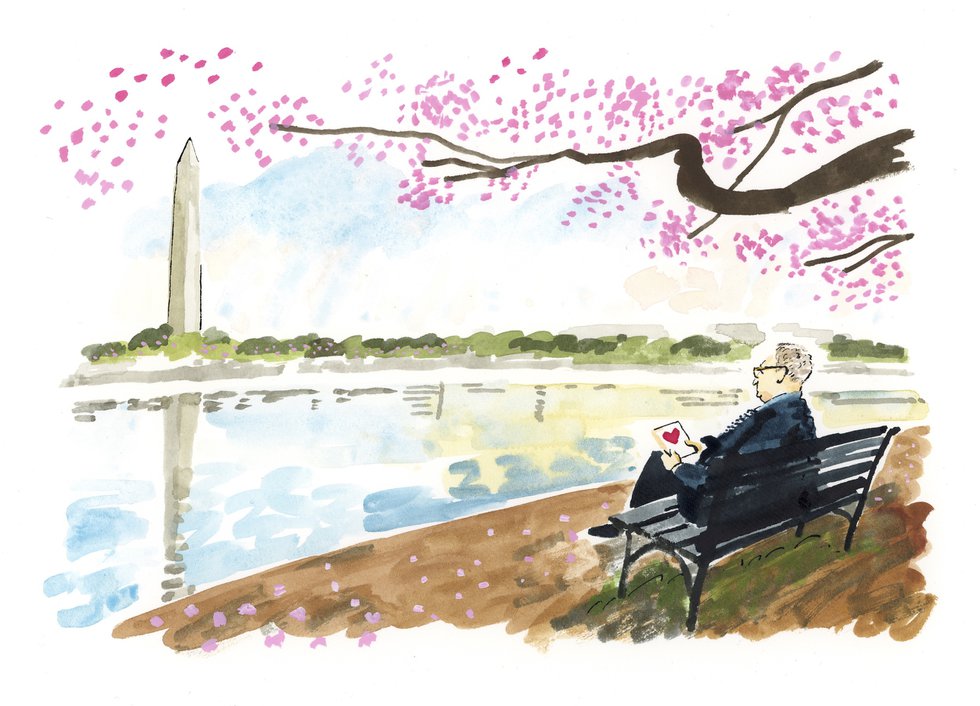The Old Dominion Barn Dance is still raising a ruckus.

The original cast of the Old Dominion Barn Dance.
Photos courtesy of Library of Virginia
“Everybody get real comfortable, kick off your shoes, dance in the aisles,” Sunshine Sue would tell the audience at the Old Dominion Barn Dance. “And who knows? You might get lucky and get a better pair when you go home.”
It was Virginia’s biggest hoedown. First airing in 1946, the Old Dominion Barn Dance was broadcast on Richmond’s WRVA radio as the city’s version of Nashville’s Grand Ol’ Opry. Hosted by pioneering femcee Mary “Sunshine Sue” Workman, the country music variety show lasted a little more than a decade, but its steel guitar-sweetened echoes still resonate.
“The Barn Dance had great entertainers, musicians, and vocalists,” remembers Cal Newman, 86, a fiddler who grew up listening to, and later performing as a backup musician on, the Saturday night performance. “A lot of legends used it as a stepping stone to greater things, like Chet Atkins, Mac Wiseman, Reno and Smiley … for some, it became a jumping off place to Nashville and stardom.”
With its blend of rustic, sometimes sentimental songs (“You Are My Sunshine” was Sue’s signature sign-off), folksy product placement, and cornball humor, the Barn Dance became wildly popular, and not just in Virginia—WRVA’s 50,000 watts could span several states, and portions were heard across the world on Armed Forces Radio. Sue and her cast even made it to Broadway in 1954 to perform in a country musical called Hayride.
Acting as the program’s talent agent and producer, Workman chose the theme for each show, writes historian Caroline Morris in her William & Mary Ph.D. dissertation, “The ‘Voice of Virginia’: WRVA and Conversations of a Modern South.” “Performers alternated musical acts—generally country or gospel music—with comedic skits of their own choice. Workman claimed the show was ‘highly produced,’ but intentionally unscripted.”
Gregg Kimball of the Library of Virginia, which holds the WRVA archive, says, on the museum’s blog, that “modern country music would not be the cultural force that it is today without the influence and popularity of the many barn dance radio shows that flourished in the 1940s and 1950s—including Richmond’s Old Dominion Barn Dance.” For example, the pickin’ and grinning and broad “y’all come” farce of early country variety shows were later swallowed whole on TV’s Hee Haw. (It’s worth noting that banjo legend Grandpa Jones served time as a cast member of both the Old Dominion Barn Dance and Hee Haw.)
WRVA, the third commercial radio station established in Virginia, came late to the Barn Dance, as the saying goes. Old Dominion debuted more than two decades after WLS in Chicago launched the National Barn Dance, followed by Nashville’s Opry. But WRVA had been regularly featuring rural old-time and country music, as well as African-American quartets, since it began in 1925, according to Caroline Morris. “The very idea of ‘old-time’ radio was a cultural contradiction for many Americans. Radio was supposed to modernize and refine the tastes of backwater bumpkins; not bring the backwater into America’s cities.”
During its heyday, the Barn Dance made friends in high places. Virginia Gov. William Tuck was a regular patron and vocal cheerleader. “[I] find the soothing and uplifting effects [of the show] a very important factor in enabling me to return to my work with renewed energy,” he told a reporter. Tuck officially designated Sunshine Sue “Queen of the Hillbillies” in 1948, adorning her with a fancy crown inlaid with tiny guitars.
The big hoedown lasted 11 years, halting in 1957 as rock ‘n’ roll became more fashionable and other entertainment options began crowding out Saturday nights. “Television knocked it all out,”says fiddler Newman.
But the Barn Dance refused to die. Over the years, at least four attempts to revive it have come and gone—and a new incarnation is currently enjoying success as a concert series at the Beacon Theatre in Hopewell. There was a memorable homecoming in 1975 as an Old Dominion Barn Dance reunion concert was presented at the show’s original home, the Mosque [now Altria Theater], with Sunshine Sue and some original cast members. “Just like we used to tell you,” the femcee announced to the audience that night. “Kick off your shoes and roll ‘em down the aisle, and we’ll sort ‘em out later.”

Sunshine Sue
Sunshine Sue
Iowa native Mary Arlene Higdon Workman caught her career break on a barn dance show in Louisville, Kentucky, before becoming synonymous with WRVA’s hillbilly programming. Workman, who died in 1979, told the Richmond News Leader in 1953, “Our kind of music is so simple, soothing, reassuring, direct that people just can’t seem to do without it any more. People have the feeling that it belongs to them.”

Chet Atkins
Chet Atkins
Although he later forged a Hall-of-Fame career in country music, Chester “Chet” Atkins’ time in the Old Dominion Barn Dance—which came shortly after he lost a regular gig at the bigger Grand Ol’ Opry—was short and sour. Despite announcing him as “the world’s greatest guitar player,” Mary Workman gave him walking papers after just a few months. Chet explained in his 1974 autobiography that, after being on the Opry, “the WRVA spot didn’t excite me.”

Joe Maphis
Joe Maphis
“Guitarist Joe Maphis was a fascinating performer,” says the Library of Virgina’s Gregg Kimball, “particularly because he was on the Barn Dance so early, and brings this heavy blues influence. His guitar playing is pretty amazing.” Johnny and June Cash so admired Maphis that when he died in 1986, they laid him to rest in the Cash-Carter family plot next to his musical idol, Mother Maybelle Carter.

Maybelle Carter and the Carter Sisters
Maybelle Carter and the Carter Sisters
When the legendary Carter Family disbanded in 1943, guitarist Maybelle and daughters Helen, Anita, and June reinvented the sound as Mother Maybelle and the Carter Sisters. Although a bit more polished in their harmonies, the quartet still performed much of the old Family material, like “Keep On the Sunny Side” and Maybelle’s trademark “Wildwood Flower.” June (later Mrs. Johnny Cash) played the comedic foil, and Anita was often featured as a solo vocalist.

Mac Wiseman
Mac Wiseman
The Crimora native’s singing style is more of a purr than a croon. After his stint at the Barn Dance, Mac Wiseman scored top 10 country hits like “The Ballad of Davy Crockett.” Wiseman’s most recent album, Songs from My Mother’s Hand, was compiled from notebooks of lyrics that his mother had learned from favorite radio tunes. Still performing today at 93, Wiseman was inducted into the Country Music Hall of Fame in 2014.

Janis Martin
Janis Martin
Thirteen-year-old Janis Martin, from Sutherlin, caused such a stir opening at the Richmond Tobacco Festival in 1953 that she became a featured act on the Barn Dance. Endorsed as “The Female Elvis” by the King himself, she caught the attention of RCA-Victor Records in 1956 and did some recording. Then the label learned that little Janis was married—and more. As Martin remembered, “RCA found out I was pregnant, and that ended that.” However, before her passing in 2007, Martin began performing again and enjoyed long overdue recognition as a rockabilly pioneer.

The New Old Dominion Barn Dance
Photo courtesy of David Parrish
The New Old Dominion Barn Dance
The first attempt to revive the Old Dominion Barn Dance came in 1973 at the Richmond Fairgrounds. “I was hired … to back the artists opening for Conway Twitty,” recalls Donna Meade. “I was supposed to be representing the new Sunshine Sue.” Now, with Meade’s help and largesse, the Old Dominion Barn Dance is back at the Beacon Theatre in Hopewell. It features Virginia entertainers and a headliner, “usually a Grand Ol’ Opry star,” says Meade, the widow of country music legend and sausage king Jimmy Dean. The program, which is put on five times a year, has become popular with seniors. “They come and see the show, and they’re thrilled beyond words,” she says. Shoes are even known to be kicked off.
This article originally appeared in our December 2018 issue.









